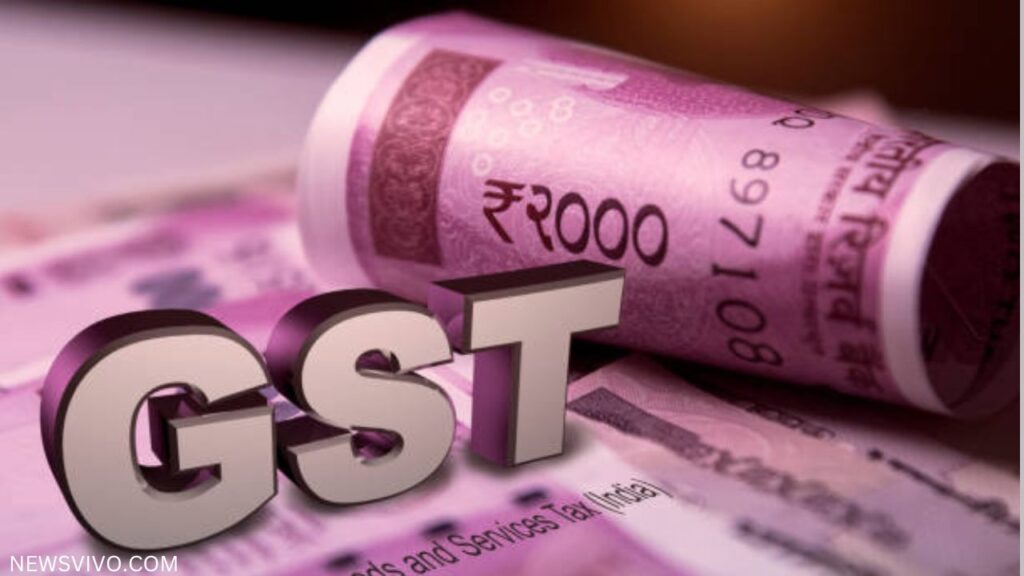Reduce personal income tax rates and decriminalise GST law, CII advises government.CII has proposed decriminalising GST law, arguing that it currently has sufficient penal penalties for deterrence against tax avoidance.

As part of its agenda put forth to the government for the upcoming Budget, the industry group CII has advocated for a decrease in personal income tax rates, the decriminalisation of the goods and services tax, and a review of the capital gains tax rates.
The CII has proposed decriminalising GST law, arguing that it currently has sufficient penal penalties to deter tax avoidance.
Additionally, it was indicated that true intent to avoid taxes and a specific percentage of the tax due should be taken into account when determining whether prosecution measures will be applicable.
To eliminate complications and contradictions, the capital gains tax’s rates and holding period need to be reexamined. Additionally, Sanjiv Bajaj, president of the CII, said that the government could think about lowering the rates of personal income tax in its subsequent drive for reform. This would raise disposable incomes and boost the demand cycle.
The chamber also stated that no arrests or detentions should be made in civil cases unless criminalization of business has been shown beyond a reasonable doubt. Tax certainty for firms should continue, and corporate tax rates should be maintained at their existing levels, the chamber said.
The CII recommended that a credible road map be created and released during the budget to address fiscal consolidation, a crucial element essential for the resumption of economy. This road map would gradually reduce the fiscal deficit to 6 of GDP in FY24 and 4.5 percent by FY26.
The pre-Budget memorandum provided to the Finance Ministry advocated increasing capital spending from its current level of 2.9% of GDP to 3.3%-3.4 percent in FY24 in order to stimulate investment.
Along with traditional infrastructures like roads, trains, ports, etc., it also recommended increasing expenditures on green infrastructure like renewable energy sources. In order to improve infrastructure creation efficiency, Gati Shakti and NIP should be fully implemented as soon as possible.
The trade group has suggested, among other things, that in order to finance infrastructure, corporate bond markets (including infrastructure bonds) be expanded, a package for large-scale urban municipal bonds be prioritised, and a Blended Finance Star Multiplier programme for sustainability projects be launched with an allocation of Rs 10,000 crore.
An increase in private sector investment is also necessary because economic growth cannot be stimulated by state investments alone. According to CII, the process of land acquisition should be sped up, swift dispute resolution mechanisms should be implemented, and private sector participation in PPPs should be reintroduced.
It has recommended implementing policies including decreasing the 28% GST rate on select consumer durables, rationalising income tax slabs and rates for people, and speeding up rural infrastructure projects for supporting job creation in the hinterland.
Regarding revenue generation, CII emphasised that in order to meet the disinvestment target and speed up PSU privatisation, which would increase revenues and improve economic efficiency, the responsibility and authority for identified PSUs should be transferred from the line ministries to DIPAM after a company has decided to go public.
In order to reduce non-priority spending, CII emphasised the need to rationalise subsidies for things like fuel and fertiliser. A startling 5.7% of GDP is thought to be made up of non-merit subsidies, of which 1.6% come from the federal government and 4.1% from the states. It stated that this is obviously untenable.
The CII recommended a boost to ease of doing business through further digitisation, faster and time-bound clearance, contract enforcement, alternative dispute redressal mechanism, and a genuine single window system encompassing central and state clearances in order to encourage manufacturing and boost exports, crucial for reviving growth.
Additionally, it was suggested that the Credit Linked Capital Subsidy Scheme (CLCSS), which supported MSMEs in upgrading their technology, be revived and that green financing be made available to support climate-friendly technologies in MSMEs.
CII has also suggested a graded plan to transfer import duty slabs to a competitive level and cover all export items, including the EOU and SEZ units, under the RoDTEP system in order to boost exports.
It is now recommended that the sunset date for starting manufacture under Section 115BAB of the Income Tax Act be moved from March 31, 2024 to March 31, 2025. According to CII, this would promote increased exports and investment in the manufacturing sector.
Reduce personal income tax rates and decriminalise GST law,Reduce personal income tax rates and decriminalise GST law Reduce personal income tax rates and decriminalise GST law,Reduce personal income tax rates and decriminalise GST law,Reduce personal income tax rates and decriminalise GST law,Reduce personal income tax rates and decriminalise GST law,Reduce personal income tax rates and decriminalise GST law,Reduce personal income tax rates and decriminalise GST law